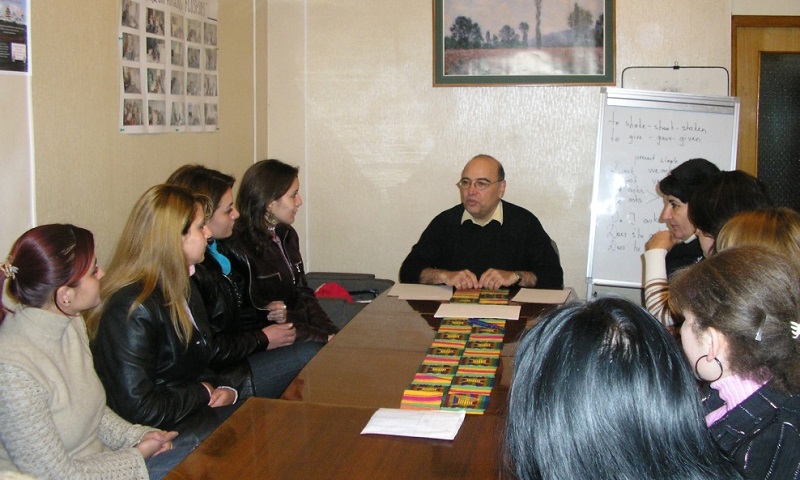
Introduction
Innovative approaches are necessary to increase the leadership of young women with vulnerable backgrounds, to eradicate poverty and prevent forced trafficking.
Our research revealed that a large number of young women age 17-22 are not engaged in public life or social activities. They have found themselves in an especially vulnerable situation - with no education, no job and no perspective. Their isolation and social regression lead to loneliness and an uncertain future.
As a solution, the Center for the Development of Civil Society (CDCS) initiated a special program aimed at providing young women from vulnerable and low-income families, orphanages, state boarding schools and refuges with equal access to education and opportunities for successful employment. CDCS was established during Perestroika in 1988 by a group of well-known scholars from Yerevan State University and Institute of Linguistics of the National Academy. Our mission is to promote ideas about democracy and civil society, women's and minority rights, pluralism/diversity (cultural, linguistic, religious and political).
Our initiative focused on implementation of UN Sustainable Development Goals (SDGs) 1, 2, 3, 4, 5 and 16 through proving vulnerable persons opportunities for successful employment, promoting healthy lives and well-being, ensuring equal access to education, promoting lifelong learning opportunities for all and achieving gender equality by empowering disadvantaged young women, by promoting peaceful and inclusive societies for sustainable development and providing access to justice for all. The project was selected for the 2008 Stockholm Challenge Award nomination.
Problem Statement
After the downfall of the Soviet Union the social and economic situation in Armenia has sharply changed due to changes in the political system. The extreme hardship caused by transition has brought about economic and moral shock. The ideal of the Soviet Positive Hero has disappeared and no new ideals have been created. There is no female role model.
One of the advantages of socialist system was free and equal education. Now, as a consequence of the market economy, education has become costly and if in families there is any money, it goes to educating boys. Once again, poverty has a female face.
Young women do not have an equal access to education and often drop out of school due to their poor financial situation. Additionally, in Armenia there are no funds for stipends; international fellowships are for students already enrolled in higher education institutions. The predominantly male-led government does not often hear their opinions and needs. This responsibility has therefore been taken over by civil society.
CDCS, with the long-term goals of improving young women’s opportunities for successful employment and reducing prostitution rates through integrating them into society, was established. It provided young women with intensive training, seminars and workshops in English, computers, work ethic, personal leadership, civic education and healthy lifestyles. Graduates received Certificates in Computer Instruction, Office Management, and NGO Management. The project has had a multiplier effect and we ensured that trained leaders return to their communities to train additional women. The results of the project have been outstanding, and consequently the seeds of a new way of thinking have been sown and new attitudes have been formed. About 70% of participants got jobs after the training.
The project impacted not only the lives of individuals, but also the society on a whole. It changed the destiny of hundreds of disadvantaged young women by giving them a voice and self-confidence to use that voice for change.
Our alumnus Hasmik wrote: “Last year when I found out that I did not enter University, I thought that my life had ended and I would never survive in this unjust world, where everything depends on money and there is no place for girls like me. I was depressed and totally lost hope. By good fortune I heard through the radio an advertisement about Young Women’s Leadership Institute. I did not believe that it was possible to get education free of charge! I cannot imagine what would have happened to me, if I had not heard this advertisement.”
Lessons Learned and Recommendations for the Future
The main lessons learned is that NGOs can and must actively participate in the implementation of the SDGs. Secondly, education is the key to overcome poverty and achieving gender equality by empowering disadvantaged young women. Lastly, empowered women will become future leaders and catalysts for change and change agents themselves. Based on our success we recommended replication of the Institute in rural areas.
Learn more about the Center for the Development of Civil Society.
Learn more about our work on youth at social.un.org/youth.
 Welcome to the United Nations
Welcome to the United Nations